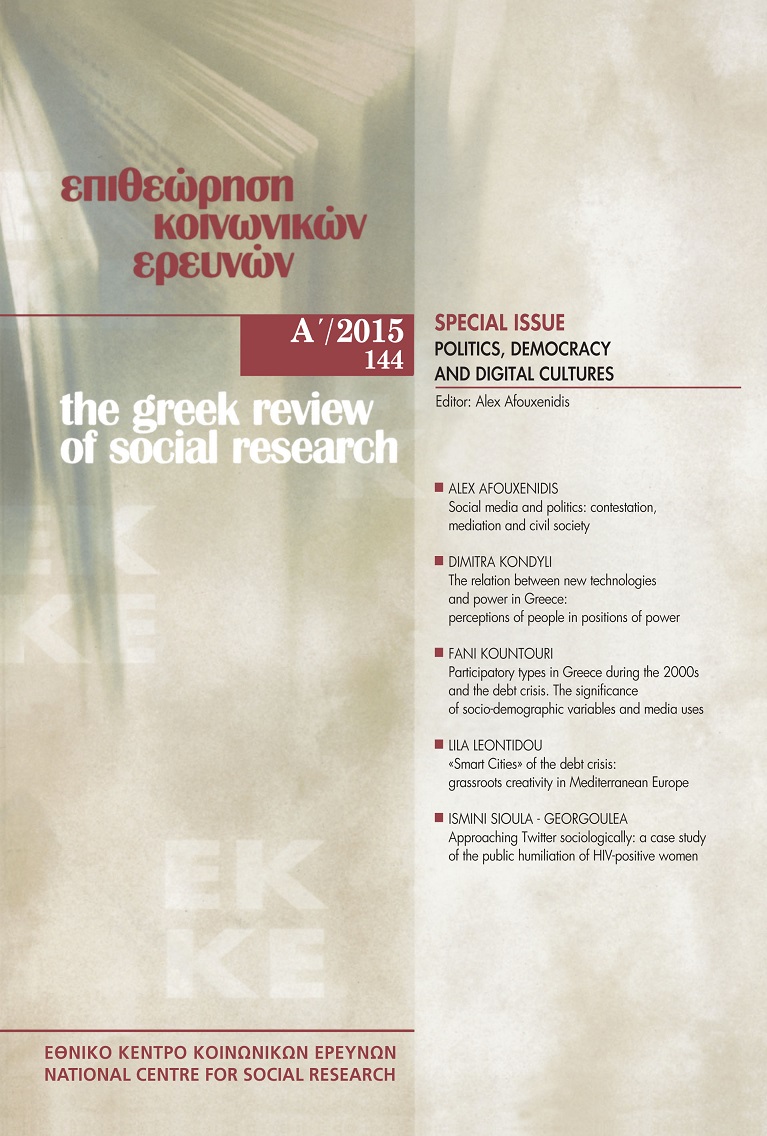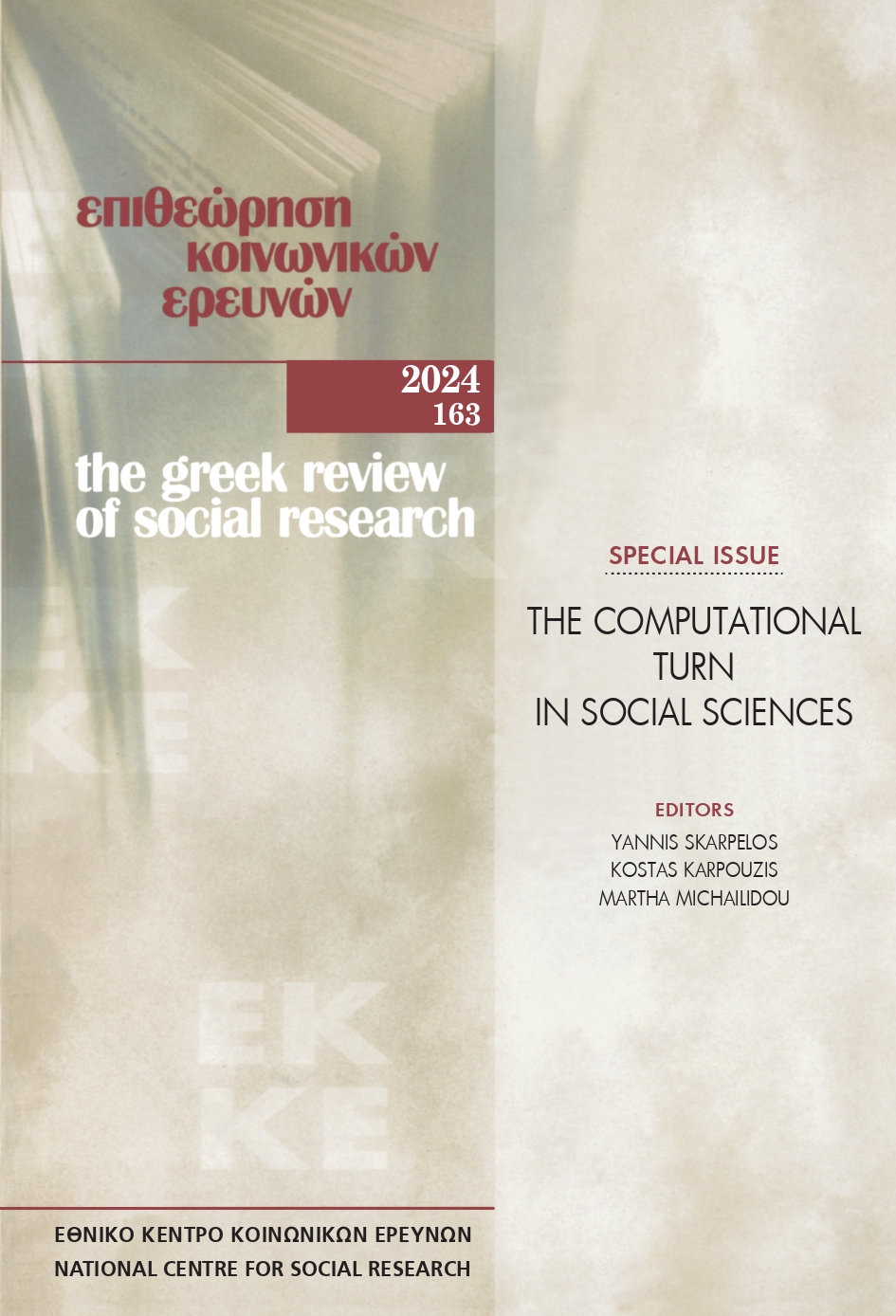The relation between new technologies and power in Greece: perceptions of people in positions of power

Abstract
The objective of this paper is to delve into the question of whether and how the Information and Communication Technologies (ICTs) are channels through which many forms of power are being exercised. The analysis will be based on the findings drawn from interviews with persons having been appointed in powerful positions in the Greek public administration and under this role have contributed to the ICTs usage as well as, secondary written sources on public administration. The main elements of this analysis include an examination of a. the nature of power, b. the subjects in positions of power within public administration as are defined within the framework of this paper, c. the ideologies of modernisation and globalisation as vehicles to the changes incurred regarding the ICTs, and finally d. the transmission of the aforementioned to wider society.
Article Details
- How to Cite
-
Kondyli, D. (2015). The relation between new technologies and power in Greece: perceptions of people in positions of power. The Greek Review of Social Research, 144, 21–44. https://doi.org/10.12681/grsr.8617
- Section
- Articles

This work is licensed under a Creative Commons Attribution-NonCommercial 4.0 International License.
Authors who publish with this journal agree to the following terms:
- Authors retain copyright and grant the journal right of first publication with the work simultaneously licensed under a Creative Commons Attribution Non-Commercial License that allows others to share the work with an acknowledgement of the work's authorship and initial publication in this journal.
- Authors are able to enter into separate, additional contractual arrangements for the non-exclusive distribution of the journal's published version of the work (e.g. post it to an institutional repository or publish it in a book), with an acknowledgement of its initial publication in this journal.
- Authors are permitted and encouraged to post their work online (preferably in institutional repositories or on their website) prior to and during the submission process, as it can lead to productive exchanges, as well as earlier and greater citation of published work (See The Effect of Open Access).



